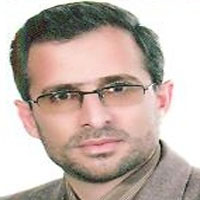Analyzing the Qur'an's linguistic arguments in the discussion of physical resurrection based on Shayim Perelman's reasoning theory
"Shayim Perelman" is one of those who, in the 20th century, following Aristotle, discussed oratory, rhetoric and the place of reasoning. We can consider the text of the Holy Quran as an argumentative discourse that seeks to answer discourses centered on beliefs such as death, the afterlife, reincarnation, etc. The argumentoriented text has features that distinguish it from other texts. One of these features is the presence of two sides or one conflicting side in it, which can also be seen in the Qur'an. In this essay, we have analyzed the verses of the Holy Qur'an in the context of bodily resurrection based on the division model of "Parliament" arguments using descriptive and analytical method. The results of the research show that the reasoning pattern of "Parliament" is found in verses like quasilogical and causal arguments, and the expressive styles of rhetorical interrogative, hesr, had an effective role in justifying the meaning of sentences towards the goal of Quranic arguments. The use of rhetorical interrogatives is one of the most basic factors of argumentation, which presents facts in the form of self-evident truths that the audience has no choice but to acknowledge.
-
A Comparative Analysis of the Unity of the Poem and the Factors of Continuity and Cohesion in Amro Bin Kulthum's Poem
Kadijeh Zarei *, Ali Baqir Tahernia
Journal of Arabic Literatur, Summer 2025 -
Descriptive Semantics of the Symbolic Meanings of "Black" and "White" in the Holy Quran in Terms of Semantic Relations
Khadijeh Zarei*, Ali Baqer Taheri Nia
Journal of Islamic Literature Research,



